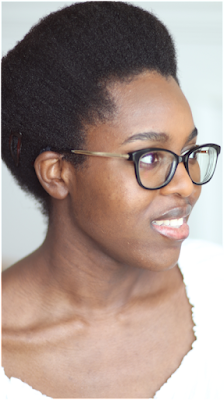Chris Farnell interview
AUTHOR INTERVIEW
A little introduction:
I’m Chris Farnell, I’ve written a novel, an anthology and an episodic cycle of novellas about a killer spaceship, as well as RPG material, articles, and at least one museum exhibit. Hi!
When did your love of books begin?
I’ve always loved stories, but reading took me a little while. My earliest memory of reading is really struggling to read aloud to a teacher because another kid was doing show-and-tell about their Batman toy at the same time, so I kept accidentally inserting Batman into the story.
But something must have clicked, because within a few years my memories quickly become filled with piles of paperback sci-fi and fantasy.
When did you start to have the wish to become an author?
When my first novel found an agent, by dad came to meet me, and had brought with him a bound and laminated copy of the Spot the Dog story I’d drawn in felt tip when I was little, so it’s always been a thing I wanted to do.
My first “proper” writing started when I was around 12, and by the time I arrived at UEA to study creative writing I already had quite a few trunk novels under my desk.
How have you found the process for becoming an author?
I found the traditional publishing process fascinating, exciting and educational, and self-publishing has shown me the process from a whole new angle. I think the difference between the expectation and the reality is that when you start out “being an author” seems like an end state, as if at some point you get your author badge and “win”.
These days I tend to think of “being an author” as all the work a writer does to bring a book out that isn’t actually writing. There’s a lot of it, however you publish and I like different parts of it to different degrees, but it can feel like its stuff that gets in the way of being a writer.
Which isn’t all bad. Sometimes things should get in the way of being a writer.
What would you say to those wanting to become an author?
Christ, I’ve no idea. I think most people who are serious about wanting to write professionally have probably already done their research into the business and the craft and formed their own opinions. I also think that as a profession we are often far too quick to give advice without thinking too carefully about how useful it is.
A good shortcut to a plot is to have a character who starts out wanting one thing, tries to get it, then realises that what they really need is another thing.
So a good place to start is to think carefully about what you want and look for advice that helps you get that, not some vague idea of “authorhood”. Alternatively, just do what you like and be really, really lucky. I hear that works really well.
Tell us about your book/books:
I wrote Fermi’s Progress because I missed old fashioned “planet of the week” storytelling, where a spaceship would turn up at a planet, have an adventure, then fly off to another planet and never think about it again.
So, a good way of achieving that, I thought, was to blow up the planet when you finished with it.
Fermi’s Progress follows a prototype FTL ship with an engine that vaporises every planet in its wake, and can’t be switched off. It takes place over four novellas, each concerning a different, soon to be exploded world with wildly different inhabitants, cultures and problems.
Ken MacLeod described it as “fresh, fun SF with a dark conceit, dangerous thought experiments, thrilling action adventures, and lots of wit and warmth." And he really knows what he’s talking about.
You can find all four parts at Amazon, here, or you can get them far more ethically, and with some exciting bonus features, at indie e-bookshop Scarlet Ferret, here.
What do you love about the writing/reading community?
I like the enthusiasm. It’s always nice to be in a space where people are focussing on things they actually like.
If you could say anything to your readers what would it be?
Obviously, to thank them and hope they enjoy the story. But also, in one of the Fermi’s Progress stories there’s a subplot involving a planet that has become divided into a two-tier society following a deadly pandemic. I wrote this some time before 2018 and absolutely never intended for it to become topical satire.
Where can people connect with you?
I’m usually around on Twitter at @thebrainofchris. You can also find more about me and my work at chrisfarnell.com.

.jpg)

Comments
Post a Comment